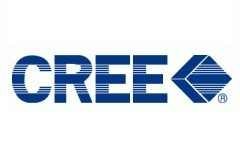One trap investors sometimes fall into is buying the stock of a company because they like the company’s product. A good product and a good investment are two very different things, and ignoring the bias created by customer loyalty can be difficult. Stocks like this tend to become dramatically overpriced, with loyalty and blind optimism driving up the stock price. These stock almost always crash back to earth at some point
The future is…light bulbs?
The incandescent light bulb was the standard up until recently, but the hot yellow bulbs are being phased out as compact fluorescent lamps become more popular. Incandescent bulbs are highly inefficient, emitting about 90% of energy into heat instead of light. CFLs improve upon this, but they still leave much to be desired. The future is clearly light-emitting diodes, or LEDs, which convert almost all energy to light.

LEDs are not new, but using them to create light suitable for home use is a fairly recent development. One company that sells such bulbs is Cree, Inc. (NASDAQ:CREE), and up until recently the stock has been unstoppable.

However, a recent weak earnings report caused a massive 20% decline in the stock the next day. Even with revenue growing 22% year over year, analysts were expecting more, and guidance suggested that margins would likely decline.
Most articles I read about Cree, Inc. (NASDAQ:CREE) focus on the energy savings a consumer could achieve by buying one of the company’s LED bulbs. Not only do the bulbs last longer than traditional bulbs, but they also use less energy, leading to significant cost savings over the bulb’s lifetime, even though the retail price is quite a bit higher. That’s all well and good, but Cree, Inc. (NASDAQ:CREE) is a light bulb company. Light bulbs — even advanced ones — are a commodity, therefore Cree, Inc. (NASDAQ:CREE)’s margins are declining. As LED lighting becomes more popular, competition will grow and prices will come down.
I don’t doubt that LEDs eventually will be the dominant form of lighting, but it won’t be a high-margin business. Before the post-earnings crash, Cree, Inc. (NASDAQ:CREE) had a market capitalization of almost $9 billion. That’s about nine times sales. Even now, the market cap is a little greater than $7 billion, which is nearly 50 times the best net-income figure from the past three years.
Revenue will grow, margins will decline, and those who bought Cree, Inc. (NASDAQ:CREE) at such high prices will be disappointed. It’s as simple as that.
Irrational exuberance
Electric-car company Tesla Motors Inc (NASDAQ:TSLA) has seen its stock rocket higher in 2013. So far this year, the stock is up more than 300%, as the company’s first real profit delighted investors. The Tesla Model S has received overwhelmingly positive reviews and taken a legitimate chunk of the luxury car market. Tesla Motors Inc (NASDAQ:TSLA) sold 5,150 Model S vehicles in the second quarter of this year.
Tesla Motors Inc (NASDAQ:TSLA)’s market cap is now about $20 billion. Trailing-12-month revenue is $1.3 billion, and while net income was positive, it was small enough to be insignificant.
The auto industry involves constant and substantial capital investments. Expanding production is expensive, and profit margins are typically small. Tesla Motors Inc (NASDAQ:TSLA) is aiming to eventually make a mass-market vehicle, and if it succeeds, margins will be extremely low. Ford, for example, had a net income margin of just 4.2% in 2012. More than 60% of its operating cash flow went to capital expenditures. As Tesla grows, profitability will be constrained by the nature of the industry.
Tesla Motors Inc (NASDAQ:TSLA) does have a real chance at becoming a major car company, but the stock price has gotten so out of line with reality that even the best-case scenario doesn’t lead to exceptional results for investors. Ford has a market cap four times that of Tesla, with about 100 times the sales. If it takes Tesla 15 years to grow its market capitalization to match Ford’s, investors will achieve an annualized return of 9.7% — that’s the best-case scenario. This is unlikely, as Tesla will probably become a niche player instead, in which case the return will be far lower or even negative. If everything goes right, buying Tesla Motors Inc (NASDAQ:TSLA) today will give you decent returns. Incredible risk, modest returns — that’s what Tesla offers today.
No barrier to entry
A lot of people use Pandora Media Inc (NYSE:P), an Internet music-streaming service, and it’s a great product. Pandora Media Inc (NYSE:P) pays out royalties each time it plays a song and generates advertising revenue from its free members and subscription revenue from its paying members. The problem is that there are a tremendous number of rivals, each offering essentially the same thing, and this will keep Pandora Media Inc (NYSE:P)’s profitability low or negative for the foreseeable future.
Spotify has become extremely popular, Apple is set to launch its own service, Google has an offering, and Windows 8 has a built-in music-streaming app. There are plenty of smaller competitors as well. There’s almost no barrier to entry in this business.
I don’t think that Pandora Media Inc (NYSE:P) makes sense as a stand-alone company. If it ever becomes consistently profitable, those profits will be low — far too low to justify the $3.6 billion market capitalization. There’s nothing truly unique about Pandora Media Inc (NYSE:P) to make it stand out from other services, and I’ve found most of them to be perfectly fine for my music-streaming needs. The owners of the content will always be the ones holding the cards, and the streaming services will always be at their mercy.
The bottom line
It’s not a bad idea to research companies that make your favorite products, but basing an investment decision solely on that product is a recipe for disaster. The three companies above have had their stocks bid up to elevated levels, likely by investors focused on the product instead of the business model, and eventually reality will catch up with them. A great product alone doesn’t make a great company, and too often this point is forgotten.
The article Great Products, Terrible Investments originally appeared on Fool.com and is written by Timothy Green.
Timothy Green has no position in any stocks mentioned. The Motley Fool recommends Pandora Media and Tesla Motors. The Motley Fool owns shares of Tesla Motors.
Copyright © 1995 – 2013 The Motley Fool, LLC. All rights reserved. The Motley Fool has a disclosure policy.



